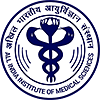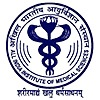MD Paediatrics Syllabus and Subjects

The MD Pediatrics syllabus can be divided into six semesters. It covers topics such as Neonatology, Renal Disorders, Behavioral and Developmental Disorders, Gastrointestinal and Liver Disease, etc., along with a vast choice of electives such as Adolescent Medicine, Infectious Disease, Medical Genetics, Emergency Medicine, etc.
Semester Wise MD Pediatrics Syllabus
The MD Pediatrics course consists of core and elective subjects. Depending on the university/college, they may differ slightly. It has two parts -a compulsory set of courses covering all foundation areas in sociology and a set of elective courses that aims at building job-specific skills and knowledge. MD Pediatrics course aims to ensure that the students have the chance to learn about all the topics in great depth. The semester wise courses are as follows:
|
SEMESTER I |
SEMESTER II |
|
Growth and Development |
Psychological disorder |
|
Respiratory |
Endocrinology |
|
Neonatology |
Infections |
|
Behavioral Disorder |
Skin diseases |
|
SEMESTER III |
SEMESTER IV |
|
Social Paediatrics |
Adolescent Health |
|
Genetics |
Central Nervous system |
|
Nutrition |
Fetus Newborn |
|
Cardiovascular |
Eye diseases |
|
Neurological Disorders |
Emergence and critical care |
|
Infections |
Digestive system |
|
SEMESTER V |
SEMESTER VI |
|
Social Paediatrics II |
Adolescent Health II |
|
Research Project |
Internship |
MD Pediatrics Subjects
The MD Pediatrics subjects taught in the course are primarily similar for all the colleges, but it varies depending on the institution's course module. But, the overall subjects are pretty similar but put in a different order, depending on the teaching method. Overall, the course makes them have a peculiar way of teaching and writing and a good scope of sociology.
Core Subjects:
- Neonatology
- Renal Disorders
- Behavioral and Developmental Disorders
- Gastrointestinal and Liver Disease
Elective Subjects:
- Child Abuse Pediatrics
- Child Neurology
- Pediatric Critical Care
- Neonatology
- Pediatric Oncology
- Adolescent Medicine
- Pediatric Cardiology
- Pediatric Endocrinology
- Pediatric Gastroenterology
MD Pediatrics Course Structure
The MD Pediatrics course syllabus is designed to mainly include various works and authors from sociology and elective subjects, which gives the knowledge to work in the job sectors. This field sharpens a student's mind to tackle the daily obstacles faced in their workplace, studies & other similar aspects. The course involves subjects that include factors like:
- Neonatology
- Renal Disorders
- Behavioral and Developmental Disorders
- Gastrointestinal and Liver Disease
MD Pediatrics Teaching Methodology and Techniques
MD Pediatrics is a course focusing on different aspects of Pediatrics, study, diagnosis, and cure of infants, children, and adolescents. The course is designed based on requirements and helps get the most exposure to the field, and the MD Pediatrics course subjects deal with the same. Therefore, learning strategies have varying implications for courses.
- Theoretical Knowledge
- Practical and Clinical Skills
- Thesis/Research Work
- Attitude including Communication Skills
- Training in Research Methodology, Medical Ethics, and Medicolegal Aspects.
MD Pediatrics Projects
MD Pediatrics project, known as a mini-thesis, is a compulsory project for the students to complete at the end of their semester. Students should regard their projects as an ideal opportunity to integrate what they have learned during the MD Pediatrics program and apply it to their future working profession. Some of the project topics are:
- Clinical outcome of Neonatal Seizures
- Etiology, clinical profile and outcome of hemiplegia in children aged two months to 12 years
- Randomised controlled trial of nebulized budesonide Vs. oral prednisolone in severe acute asthma
- Profile and outcome of dilated cardiomyopathy in children - A short term follow up
- Child Health Indicators in urban slum
MD Pediatrics Reference Books
MD Pediatrics course is the one meant for the specialization in the field of child health/pediatrics. The topics taught in the course module are very much enough. But, to get a deep or in-depth knowledge, there are certain books published by the -authors, who have opened up about their thought process, and thus helps in being more skilled and knowledgeable about the course and its functions which are a significant part of MD Pediatrics Subjects.
|
Name |
Author |
|
Paediapaedia: An Imaging Encyclopedia of Pediatric Disease |
Michael P. D’Alessandro |
|
Child Injury Prevention |
David C. Schwebel |
|
Becoming a Pediatrician |
Daniel Schumacher |
|
Pediatric Common Questions Quick Answers |
Donna M. D’Alessandro, Lindsay Huth, Susan Kinzer |
|
Autism Spectrum Disorder |
Michael Fitzgerald |























